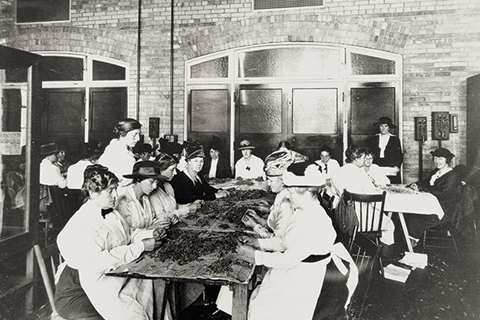In 1903, 22 women started a club for a very rare type of female: the university graduate. The group, then called the University Women’s Association, focused on social events, lectures and community advocacy. “Women were not considered persons until 1929, so it was amazing that these women earned degrees, and began this club,” says current president, Judith Lewis.
The group is still going strong: In April, the University Women’s Club of Toronto celebrated its 110th anniversary. While the club is not affiliated with U of T – it’s open to any female university graduate – its home base has been the Faculty Club since 2010. And about 90 per cent of its members are U of T grads; prominent alumni have included Dr. Augusta Stowe-Gullen (MD 1883 VIC, MDCM 1887 TRIN), the first woman to graduate in medicine from a Canadian university, and Madam Justice Mabel Van Camp (BA 1941 VIC), the first woman appointed to the Supreme Court of Ontario.
During its early years, the club served as a powerful impetus for change in the community. Members helped establish supervised children’s playgrounds and school lunches in Toronto in the early 1900s. During the Great War, they raised money and prepared surgical dressings and kit bags for the Red Cross and the U of T Hospital Association.
Today, a primary focus of the club is higher education for young women: a sub-group raises money for first-year university scholarships. The club also lobbies for government change in areas such as gun control and child welfare. And while it is the oldest university women’s club in Canada, it is no longer a rare creature: hundreds exist internationally – from Ethiopia to Pakistan.
Recent Posts
People Worry That AI Will Replace Workers. But It Could Make Some More Productive
These scholars say artificial intelligence could help reduce income inequality
A Sentinel for Global Health
AI is promising a better – and faster – way to monitor the world for emerging medical threats
The Age of Deception
AI is generating a disinformation arms race. The window to stop it may be closing





